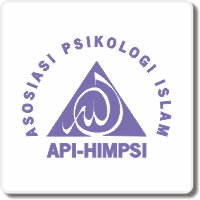THE CONTRIBUTION OF APPLIED PSYCHOLOGY FOR EDUCATIONAL MANAGEMENT ISSUE
DOI:
https://doi.org/10.32923/psc.v1i2.1153Keywords:
education, management, psychologyAbstract
This article discusses education management in frame psychology. The education management is a factual behavior of the psychological discipline that is depicted in through the analysis of the behavior system of the school organization involving a number of components. In the application of psychology in education management is a part of the element that is not stuck in the view of uniformity that practically diversity by each education leadership. Each educational institution is a singularity that relates to the differences in the nature and condition of each component of the psychological system. To get an intact picture in this article, then used a qualitative approach with literature research design. The results of the study indicated that such an understanding is to be aware of educational practitioners of the importance of psychology universally, through culture, and psychology and social. Then the role of education management is very important especially educational institutions tailored to the psychological conditions of managerial and the needs of students.
Downloads
Published
Issue
Section
License
Copyright Notice
The Psychosophia: Journal of Psychology, Religion, and Humanity is under the Creative Commons Attribution 4.0 International (CC-BY 4.0) License, according to which:
1) Authors retain copyright and grant the journal the right to first publication, with the work simultaneously licensed under the Creative Commons Attribution (CC-BY 4.0) that allows the sharing of articles published with the acknowledgment of authorship and the initial publication in this journal.
2) The authors are authorized to make additional contracts separately for distribution of the version of the work published in this journal (for example, publication in an institutional repository or as a chapter of the book), as long as there is recognition of authorship and initial publication in this journal.
3) Authors are authorized and encouraged to publish and distribute their work online (for example, in institutional repositories or on their personal pages) at any time before or during the editorial process, as it increases the impact and reference of the published work.






